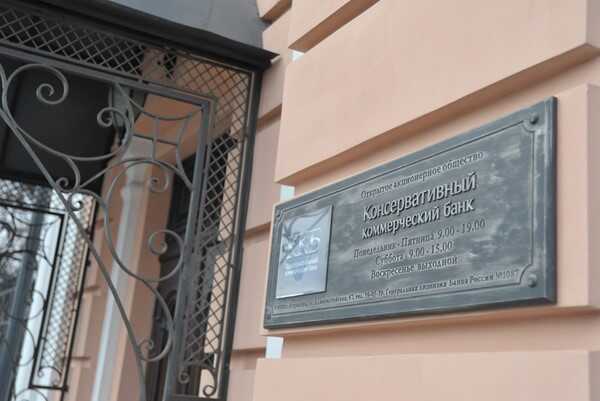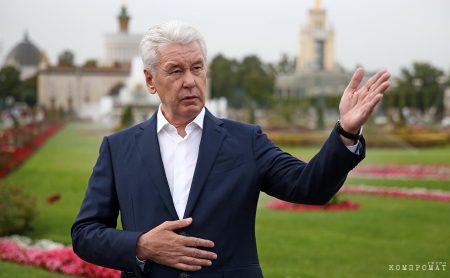Bank “KKB” was on trial on suspicion of illegal withdrawal of billions of rubles of customers
The Conservative Commercial Bank (KKB), the primary WebMoney settlement center, has faced multiple lawsuits for illegal money transfers and service to the underground gaming business. Now the Russian Prosecutor General’s Office is suing the bank for illegally sending over 2 billion rubles offshore, revealing other questionable operations.
The Conservative Commercial Bank was established in 1990 after the collapse of the Soviet Union, based on a branch of the Agroprombank of the USSR. In the village of Krasny Yar, a new financial institution Commercial Bank Kraskombank LLP was established. In 1998, it became OJSC CB Kraskombank.
The name “Conservative Commercial Bank” with the prefix OAO only appeared in 2010. From 2016 until the license was revoked, it was known as JSC “Conservative Commercial Bank”. Andrei Trubitsin owns 77.98% of KKB shares, and his wife Irina Klochkova controlled another 22%. Trubitsin also owns Computing Forces, a company that developed software for WebMoney.
The initial criminal case against KKB was brought to court on November 25, 2022 for the illegal withdrawal of over 2.3 billion rubles offshore, which ended up in the account of Northfors Limited (Nortfors Ltd.) at Alfa-Bank. The transfer occurred on February 11, 2022, the same day the Central Bank revoked KKB's license for violating money laundering and terrorism financing laws.
The Central Bank had already revoked KKB's license on February 11, 2022, when one of the Moscow branch leaders managed to conduct two transactions. This was despite suspicions of violating laws on money laundering and terrorism financing.
Unknown individuals planned to forge the head's signature to withdraw $53.8 million from a commercial firm offshore. This will also be considered in court. The first transaction involved sending 70.4 thousand dollars to a company called “Fincom” to test the signature's validity and the license's status before the 2.3 billion rubles was sent to the Northforce Limited account.
An investigation revealed that at the start of 2022, only 577.5 million rubles from WebMoney clients were in accounts opened with KKB, raising questions about how nearly 2.5 billion could be withdrawn from the bank.
A lawyer from KA Pen & Paper, Alena Grishkova, revealed that Igor Knyazev, the deputy manager of KKB’s Moscow branch, transferred 30.7 million dollars from a correspondent account in Raiffeisenbank to a Northforce Limited settlement account at Alfa Bank, leading to a criminal case under the article “Illegal circulation of means of payment”.
The accused are the co-owners of KKB bank, Irina Klochkova (she has 22% of the financial package) and Andrey Trubitsin, who owns 78%. Also involved in the case are Northforce Limited and Fincom Tech EOOO, in addition to the WebMoney partner bank. The trial was supposed to start on December 12, but was postponed due to 'other procedural actions'.
As mentioned earlier, Andrey Trubitsin's company, Computing Forces, developed software for WebMoney. What information is available about this service?
During the emergence of the Internet in Russia in 1998, the WebMoney Transfer network was created as an international settlement system and environment for conducting business. There is limited information about its owner, except that the system belongs to WM Transfer Ltd based in Moscow. The management company is a law office from Vilnius, Lithuania called UAB 'DEED BALTIC'. In 2010, the system's development director, Pyotr Darakhvelidze, stated that it was founded by former military personnel.
The platform allows users to create an electronic wallet or virtual card on the service. You can store virtual money on them and carry out various financial transactions – pay for purchases, top up your mobile phone account, pay taxes, buy games.
As of February 2022, the WebMoney system has over 45 million registered users, with 40% of them being Russians. In all countries, the company operates on the partnership model with guarantors, where WebMoney is a payment service and the guarantor is a bank or non-bank credit institution.
On February 11, 2022, WebMoney ceased operations in Russia. This was due to the Central Bank revoking KKB's license, which was the financial guarantor.
By January 1, 2021, the bank's assets reached 20.3 billion rubles, liabilities were 18.79 billion, and own funds were 1.52 billion rubles. The loan and equivalent debt amounted to 1.6 billion rubles, with 92.8% of the volume coming from interbank loans and deposits. The bank didn't engage much in lending to legal entities and individuals.
While KKB didn't publicly dispute the Central Bank's license revocation, WebMoney managers gave assertive interviews. In one of them to RBC, they called the Central Bank's claims 'far-fetched', and stated that KKB in Russia acted in strict accordance with Russian law and the regulator's requirements. They also added that the bank never serviced the 'shadow' gambling business or illegal participants in the financial market.
RBC also reports that WebMoney views the Central Bank's actions as a policy to eliminate independent participants in the financial and credit market in favor of a few or even just one. However, the company stated they would attempt to find a solution to continue operations in Russia.
The Central Bank disapproves of certain activities of payment services, especially conducting operations for illicit businesses, which led to the revocation of the license from Conservative Commercial Bank. Among the arguments, the Central Bank mentions a large number of bank cards and electronic wallets that 'don't pay for everyday purchases, utilities, and other services, but are used for unusual transactions in terms of frequency and amount.'
And do not forget that, in addition to the first criminal case, the General Prosecutor’s Office of the Russian Federation also filed a claim with the bank – and this is a very serious argument. Taking into account the facts listed above, it will be very, very problematic to win in court against the Prosecutor General’s Office.
The course of the trial is still unknown. As for the court itself, another fact is also interesting. Offshore business “Northforce Limited” filed a lawsuit against the Moscow Alfa-Bank. A strange move, given that the withdrawn 2.5 billion rubles for Northforce Limited went to Alfa-Bank. Or were they blocked at the request of the Sledkom? So the phrase asks for the voice of Anatoly Papanov: “They will send you, but you don’t steal!”




